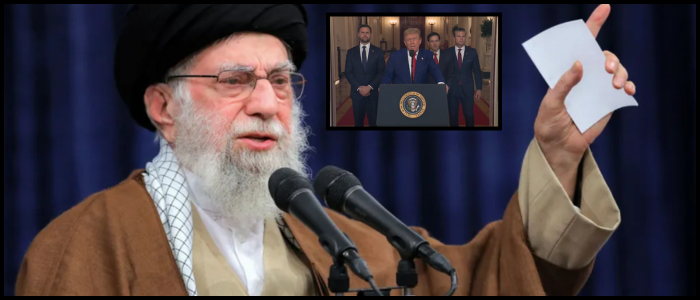Netanyahu Hails Trump's Courageous Decision
Netanyahu, who has been outspoken for years about what he views as an increasing danger from Iran, has for more than a decade pressured the US to take military action against Iran's nuclear program. This time, he was cheering a historic decision by Trump: one that may have changed the conflict forever. Netanyahu maintained for years that it would take American military might to pierce the deep defences around Iran's main nuclear site, Fordo, which is buried in a mountain.
Israel said it could respond on its own, though the participation of US B2 bombers has greatly increased the impact of a response. Israel had drawn up a list of targets, including Iranian military infrastructure nuclear scientists and government buildings. But without support from the United States, it did not have the capacity to fully cripple deeply-guarded nuclear sites. Iran has said that its nuclear materials had already been transferred before the strike.
The Iranian Reaction and the Way Forward
What happens next depends in no small part on how Iran reacts. Any US military intervention, he said, "will be a disaster for the United States" in the region, Ayatollah Ali Khamenei had said only recently. The Iran-backed Houthi rebels in Yemen vowed to attack US ships in the Red Sea should America ever get involved.
With US forces having acted, American personnel, businesses and interests in the region could become targets. Iran has numerous possible responses to retaliate — from targeting US warships and bases to closing the Gulf to oil shipments, to spiking global fuel prices.
While the US has indicated there are no plans for additional retaliation or to seek regime change in Tehran, the spectre of escalation lingers. Iran could opt to retaliate discreetly, relying on proxy groups to launch limited attacks. This approach mirrors Iran's limited retaliation when Trump ordered the killing of a senior Iranian commander, Qasem Soleimani, in 2020.
The situation is still precarious, with President Trump warning that any Iranian retaliation would be met with overwhelming force. With the eyes of the world fixed upon it, the Middle East hangs poised, uncertain whether this will translate into a peaceful chapter — or a more dangerous stage — of its wars.
Stay connected with us for more updates or news about the US Iran war.
World

US Bombs Iran Nuclear Sites, Tensions Soar

In a significant escalation in the ongoing war, the US has entered the fray by executing a bombing campaign on Iran's nuclear plants – a 'brave step' as one would expect that was warmly welcomed by Israeli Prime Minister Benjamin Netanyahu. Speaking behind a lectern in Jerusalem, Netanyahu did not speak to the people of his country in Hebrew but spoke directly to US President Donald Trump in English. His message was warm and encouraging, emphasizing the tremendous potential this move has for the region.















